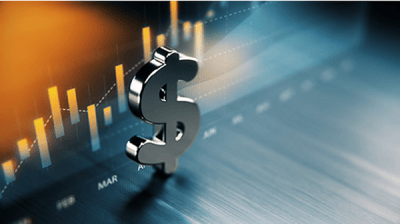Slowing Food Inflation is Good News for Consumers
Food prices have been on a roller coaster ride over the past several years. The grocery store is one of the first and most noticeable places...
Manage your everyday finances with convenient accounts, flexible cards, and personalized service designed to fit your life.
At First Federal Bank, we offer flexible mortgage solutions for almost any situation, helping you secure the right financing for your dream home.
Business banking offers secure financial management, streamlined transactions, credit options, and tools to help businesses grow efficiently and sustainably.

 As Investopedia contributor Jason Fernando explains, “Inflation is the decline of purchasing power of a given currency over time.” As prices for goods and services increase, the money in your wallet is unable to buy as much. But the effects of inflation on your finances extends beyond pricier items.
As Investopedia contributor Jason Fernando explains, “Inflation is the decline of purchasing power of a given currency over time.” As prices for goods and services increase, the money in your wallet is unable to buy as much. But the effects of inflation on your finances extends beyond pricier items.
What causes inflation?
Inflation can be caused by many factors, from higher costs for materials and labor to supply chain issues. If a good or service is in high demand but there is not enough for everyone, the cost of said items tends to rise. Similarly, if the materials needed for an item are not widely available or the work needed to create the item cannot be found, inflation rates can increase dramatically. Many sites like NerdWallet explain how to calculate inflation rate, which involves the Consumer Price Index (CPI). This chart is calculated by the U.S. Bureau of Labor Statistics and includes the prices paid for various goods and services, categorized into eight groups. Additional metrics for determining inflation rates can be found via the Personal Consumption Expenditures price index (PCE), which is calculated by the U.S. Bureau of Economic Analysis and also includes categories of different services and goods. Other statistics can also come from the Wholesale Price Index (WPI) and the Producer Price Index (PPI).
How inflation affects savings
When you have money in a savings account, you typically accrue interest over time. But if the rate of inflation is higher than your savings account interest rate, you are actually falling behind when it comes to saving. The value of your money is then lower than what it started at when you first put it into the account. Investopedia contributor Poonkulali Thangavelu explains it simply: “Let’s say you have $100 in a savings account that pays a 1% interest rate. After a year, you will have $101 in your account. But if the rate of inflation is running at 2%, you would need $102 to have the same buying power that you started with.” Additionally, if you do not have your savings in an account accruing interest and instead keep it in a safe at your home, you are losing out even more.
Ways to safeguard your finances
There is no one way to guarantee your personal finances will be protected from the results of inflation. But there are ways you can increase your income and keep your money from becoming stagnant. Fernando states one of the best ways to fight inflation is to invest in stocks or a Treasury Inflation-Protected Securities (TIPS) exchange-traded fund (EFT). TIPS are a type of bond that helps investors preserve purchasing power because it is indexed directly to CPI. When it comes to stocks, the interest rates for these investments tend to increase with inflation and have larger payouts. However, investing comes with its own risks and rewards you should seriously consider before putting your life savings behind something. If you are not interested in investing directly into stocks or EFTs, you can acquire real assets to improve your finances. Real estate and gold are two assets that often retain value or provide pricing power to combat inflation.
Inflation can have a drastic impact on how we live. To understand how it occurs can help you safeguard your finances for a more fruitful future.

Food prices have been on a roller coaster ride over the past several years. The grocery store is one of the first and most noticeable places...

1 min read
Whether you have your eye on a new or used car, its price is probably much higher than it would have been a half-decade ago. Vehicle prices have...

Car prices have been steadily rising over the past few years, and despite a promising decline in used car costs in the second half of 2022, the...
Manage your accounts, make payments, and more.
Open an account with us.